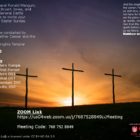This simile means totally transparent, and can apply in both a literal and figurative sense. Metaphorically it means either a clear sound or very easy to understand. The literal version was used in the biblical test of Revelation 21:11, even in the Tyndale Version, first published in 1526, and seems to be the origin of the thought:
“Havyng the brightness of God. And her shynynge was lyke vnto a stone moste precious even a lasper cleare as cristall.”
The use of this comparison to sound came as early as 1740 in Memoirs: Being a New Abridgment of the Philosophical Transactions, by Benjamin Baddam, published by the Royal Society of Great Britain in London, on page 259:
“…but the sound that those which had been as clear as crystal before, had now lost a great deal of their transparency…”
Crystal-clear is
used to describe understanding by December, 1854, in an article titled ‘As
Clear as Crystal!’ which appeared in Punch,
or The London Charivari on page 44:
“LAING delivers his Crystal-clear account of the directors’
stewardship…”
Today, more than
ever, we need to be clear and transparent in our dealings with others. Templars
should be examples for those who have trouble telling truth from lies in our
confusing society.


